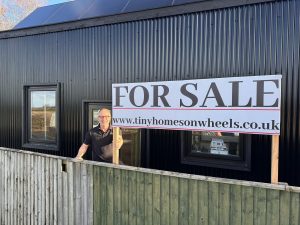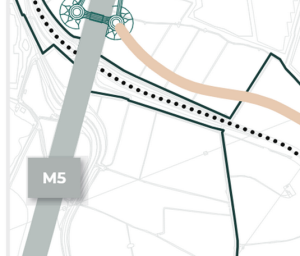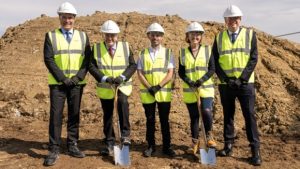South West facing rural housing crisis

The South West is enduring the worst rural housing crisis in England, according to a new report from countryside charity CPRE.
The South West has more cases of rural homelessness and longer waiting lists for social housing than any other region of England. 6,000 people in rural parts of the South West are currently homeless, while social housing waiting lists have grown by 44.6 per cent since the turn of the century. This situation cannot be allowed to continue. The South West is in critical need of genuinely affordable homes.
Published today by CPRE, ‘Unravelling the housing crisis: the State of Rural Affordable Housing’ sets out the causes of the problem, lays bare its impact on real people and explains what the government can do to fix it.
The current system relies too much on the private sector and has created a chronic shortage of genuinely affordable housing, while local authorities are not building enough homes for social rent to replace those sold off under Right to Buy. The issue has been exacerbated by a proliferation of short-term lets and second homes, which remove housing from the open market and push prices even higher. This is particularly the case in many coastal communities.
In Cornwall, where more than 23,000 families are on social housing waiting lists, the number of properties for short-term let grew by 661 per cent in the five years to 2021. Devon has seen 4,000 homes taken off the private rental market and 11,000 new short-term listings since 2016.
The government has legal powers to protect social housing purchased under the Right to Buy scheme from being sold off at market rates or as second homes. Our research is the first published study to look at the overall coverage of these so-called ‘Section 157’ powers. It revealed that large towns including Frome, Padstow and Sherborne – where there is a particular lack of affordable housing – have no coverage at all.
The report contains a list of recommendations that CPRE believes will help to solve the housing crisis in rural England. It includes calls for the government to:
- Ensure the term ‘affordable housing’ is redefined to directly link to average local incomes. Where homes are not linked to average local incomes they should not be classed as affordable, as this obscures the type of housing that is being delivered.
- Stipulate a minimum target for social rented homes in all new residential developments in national and local planning policy.
- Support local communities to deliver small-scale developments of genuinely affordable housing and make it easier for councils to purchase land at a reasonable price, enabling the construction of social housing and vital infrastructure.
- Introduce a register of second homes and short-term lets, with new powers for local authorities to levy additional council tax on second homes.
- Extend restrictions on the resale of ‘affordable housing’ to all parishes with fewer than 3,000 inhabitants to ensure properties continue to be used by local workers, not as second homes or holiday lets.
CPRE Chief Executive Roger Mortlock said: “Decades of inaction have led to an affordable housing crisis that is ripping the soul from our rural communities. Solutions do exist and the next government must set and deliver ambitious targets for new, genuinely affordable and social rented rural housing, curbing the boom of second homes and short-term lets.
“Record house prices and huge waiting lists for social housing are driving people out of rural communities, contributing to soaring levels of often hidden rural homelessness. Urgent change is required to ensure we don’t end up with rural communities that are pricing out the very people needed to keep them vibrant.”









